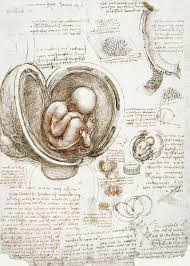"Constantly regard the universe as one living being, having one substance and one soul; and observe how all things have reference to one perception, the perception of this one living being; and how all things act with one movement; and how all things are cooperating causes of all things which exist; observe too the continuous spinning of the thread and the contexture of the web."
-Marcus Aurelius, from the Meditations, George Long translation.
---
The downfunnelled light from the desklamp struck the reporter across the hips; to the city editor sitting behind the desk the reporter loomed from the hips upward for an incredible distance to where the cadaverface hung against the dusty gloom of the city room's upper spaces, in a green corpseglare as appropriate as water to fish--the raked disreputable hat, the suit that looked as if someone else had just finished sleeping in it and with one coat pocket sagging with yellow copy paper and from the other protruding, folded, the cold violent still damp black
ALITY OF
BURNED
--the entire air and appearance of a last and cheerful stage of what old people call galloping consumption--the man whom the editor believed(certainly hoped) to be unmarried, though not through any knowledge or report but because of something which the man's living being emanated--a creature who apparently never had any parents either and who will not be old and was never a child, who apparently sprang fullgrown and irrvocably mature out of some violent and instantaneous transition like the stories of dead steamboatsmen and mules, if it were learned that he had a brother for instance it would create neither warmth nor surprise anymore than finding the mate to a discarded shoe in a trashbin--of whom the editor had heard how a girl in a Barricade Street crib said that it would be like assessing the invoked spirit at a seance held in a rented restaurant room with a covercharge.
-William Faulkner, from Pylon
---
Of all existing things some are in our power, and others are not in our power. In our power are thought, impulse, will to get and will to avoid, and, in a word, everything which is our own doing. Thing not in our power include the body, property, reputation, office, and, in a word, everything which is not our own doing. Things in our power are by nature free, unhindered, untrammelled; thing not in our power are weak, servile, subject to hindrance, dependent on others. Remember then that if you imagine that what is naturally slavish is free, and what is naturally another's is your own, you will be hampered, you will mourn, you will be put to confusion, you will blame gods and men; but if you think that only your own belongs to you, and that what is another's is indeed another's, no one will ever put compulsion or hindrance on you, you will blame none, you will accuse none, you will do nothing against your will, no one will harm you you will have no enemy, for no harm can touch you.
-Epictetus, The Enchiridion
---


No comments:
Post a Comment
Thank you for your interest in the material. Feel free to post, and speak your mind. "Democracy is the conundrum in which good peoples repair."